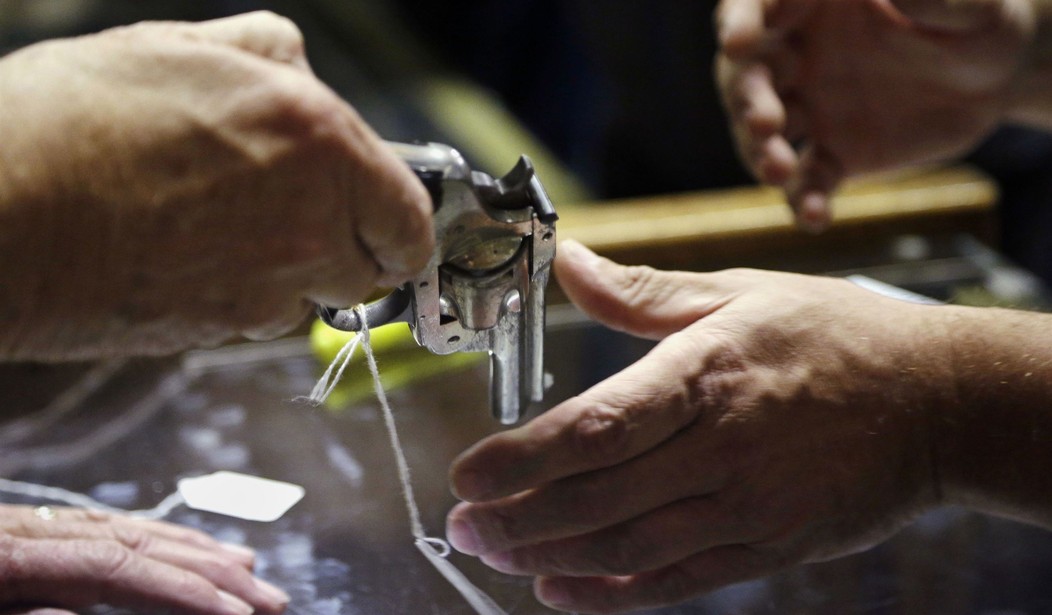Preemption is a pretty important piece of legislation in any state. It prevents an unruly patchwork of gun control laws that would be virtually impossible for anyone to navigate. It makes it so someone in compliance with the law when they step out of their home doesn’t end up arrested when they cross the city limits.
Considering the insanity of gun control laws some people want, that’s not a bad thing.
However, for a little while now, cities have been declaring war on their state’s preemption laws. Now, the media is getting involved.
The tactic of preemption, which essentially co-opts the power of American legal hierarchy, was first broadly utilized by tobacco corporations, who lobbied for the laws in the 1960s and ’70s as a way to avoid local regulations and protect profits. But more recently the National Rifle Association picked up where Big Tobacco left off, embracing the laws as a central survival strategy. “These laws are vital,” a recent post from the organization’s lobbying arm declared, “as they prevent localities from enacting an incomprehensible patchwork of local ordinances.”
The laws vary by language and degree: In five states, Florida, Iowa, Kentucky, Minnesota and Mississippi, local officials found to be in violation can be personally sued; in Kentucky they can also face criminal penalties. Gun control advocates point out that the five states without preemption laws – Connecticut, Hawaii, Massachusetts, New Jersey and New York – also have the country’s lowest rates of gun death.
“Gun activists will tell you it’s about having a statewide system and making sure that individuals aren’t subject to a patchwork of laws,” says Allison Anderman, a senior counsel at the Giffords Law Center to Prevent Gun Violence. “But that’s just smoke and mirrors. It’s just another effort by the gun lobby to prevent gun reform, and in particular it prevents communities from being able to legislate in ways that they think are the most impactful.”
In other words, Anderman knows what I think better than I do.
Which I doubt, because Anderman probably lacks the ability to think.
Yet I invite you to look at the phrasing in that first quoted paragraph. The journalist links gun rights with the tobacco industry–perhaps the only industry as hated as the firearm industry– and uses particular phrasing to elicit a response. By saying it “co-opts the power,” it makes it sound like someone has usurped authority rather than the state creating a particular rule.
Especially once that can be presented in a logical way.
People like Anderman can’t argue directly against what we say, so she props up a strawman of what we really mean and attacks that instead.
Yet there’s also a hypocrisy in their claims of local solutions to problems. You see, for we gun rights activists, we want guns to be free for everyone. We see it as a basic human right and so preemption is consistent with that thinking.
For the gun control crowd, though, they are talking about local solutions to their gun violence problems, but the only allowable “solution” in their eyes is more gun control. Don’t believe me? Look at their response to the Second Amendment sanctuary counties.
They don’t give a damn about local control. They just want control and, since they can’t get it in a number of states, they want to make it so states can’t bar local communities from infringing on our basic civil liberties.
Luckily, U.S. News and World Report is a legitimate news agency and they got a counterpoint, someone to provide the pro-gun side other than someone from Giffords.
Oh, wait. No they didn’t. Writer Trevor Bach did none of those things. He didn’t reach out to the NRA, Gun Owners of America, or the Second Amendment Foundation to talk to someone there about this important topic. He didn’t talk to state or local gun rights groups to get their take on these laws and why they’re necessary.
Hell, he could have reached out to Cam or me, but so far as I can tell, he didn’t.
No, Bach went to Giffords, wrote what they told him to write, and called it a day. Journalistic malpractice masquerading as reporting on a supposedly vital issue.
This is what we’re up against, and why it’s so important to rally together and dig in for the fight.







Join the conversation as a VIP Member